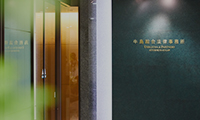An article titled “Whether Biomass Fuels for Power Generation Are Considered Waste (Based on 2021 Collection of Cases Decided by the Ministry of the Environment),” written by Kenji Sarukura, was posted on “BUSINESS LAWYERS.”
Regarding the determination of whether a fuel is considered waste, the criteria are publicized in the form of administrative notices and court precedents.
However, even by referring to such criteria, it is not easy to determine whether the relevant fuel would be categorized as waste.
Therefore, it is necessary to perform careful examination by referring to the “2021 Collection of Cases of Determination on Whether Biomass Fuels for Power Generation Are Considered Waste (March 2022)” and based on the latest guidelines and notifications, regulatory trends and court precedents, and also based on the appropriate opinions of legal counsel and other experts as necessary.
1. What is biomass?
2. Laws and regulations governing biomass power generation business
3. Criteria for categorizing as waste
(1) Administrative notices
(2) The issue of inverse onerous contract
(3) Wood shavings
(4) Animal and plant residues
4. Matters to note when consulting with authorities regarding waste treatment
5. Legal risks entailed in inappropriate waste treatment or commissioning waste treatment
https://www.businesslawyers.jp/practices/1461


